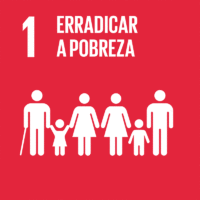Ciência_Iscte
Publicações
Descrição Detalhada da Publicação
A prioritisation index for blight intervention strategies in residential real estate
Título Revista
Journal of the Operational Research Society
Ano (publicação definitiva)
2018
Língua
Inglês
País
Reino Unido
Mais Informação
Web of Science®
Scopus
Google Scholar
Esta publicação não está indexada no Overton
Abstract/Resumo
The existence of abandoned or poorly maintained properties, often with overgrowth, litter, and abandoned junk – or “neighbourhood blight” as it is sometimes referred to – is a complex and wide-ranging real estate problem. Its detrimental impact on neighbourhood property values, safety and reputation requires an elucidation of where its causes lie, which in turn requires that areas of intervention first be identified. The need is for multidimensional solutions which take into account different stakeholders’ interests and perceptions. To address this need, this paper integrates cognitive mapping and multiple criteria decision analysis (MCDA) and, based on the discussion of real world cases with a panel of urban planning experts from the Lisbon municipality in Portugal, constructs a blight intervention prioritisation index. The resulting framework was validated by the participating panel members and a representative of the city council, and is aimed at facilitating strategies for intervention and elimination of residential neighbourhood blight.
Agradecimentos/Acknowledgements
--
Palavras-chave
Multiple criteria analysis,Problem structuring,Cognitive mapping,Blight,Real estate
Classificação Fields of Science and Technology
- Economia e Gestão - Ciências Sociais
Contribuições para os Objetivos do Desenvolvimento Sustentável das Nações Unidas
Com o objetivo de aumentar a investigação direcionada para o cumprimento dos Objetivos do Desenvolvimento Sustentável para 2030 das Nações Unidas, é disponibilizada no Ciência_Iscte a possibilidade de associação, quando aplicável, dos artigos científicos aos Objetivos do Desenvolvimento Sustentável. Estes são os Objetivos do Desenvolvimento Sustentável identificados pelo(s) autor(es) para esta publicação. Para uma informação detalhada dos Objetivos do Desenvolvimento Sustentável, clique aqui.

 English
English




